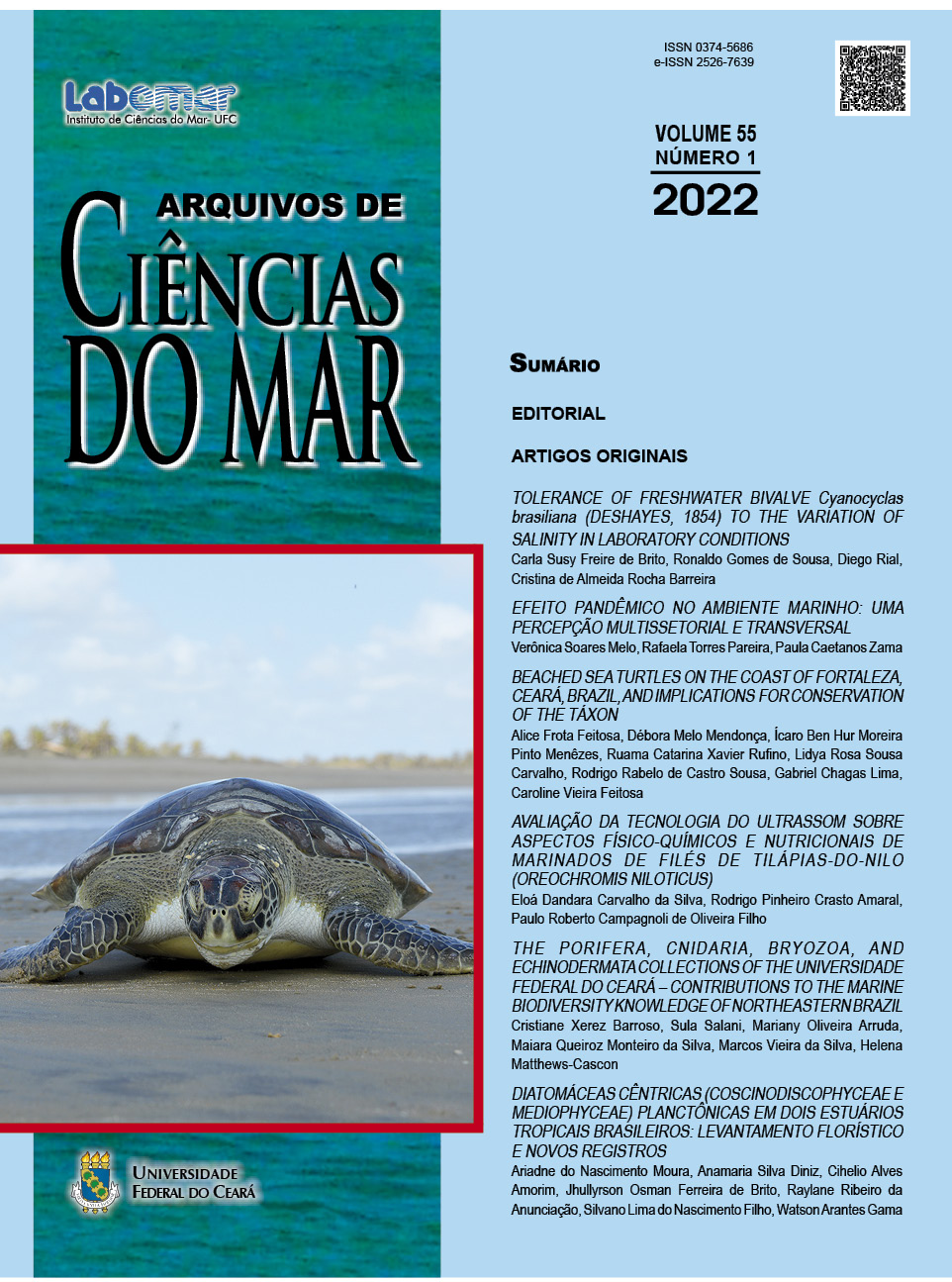CARACTERIZAÇÃO DA FROTA PESQUEIRA DE ITAIPAVA, ES, BRASIL
Characterization of the fishing fleet of Itaipava, ES, Brazil
DOI:
https://doi.org/10.32360/acmar.v55i1.62567Abstract
To fill the gaps of knowledge about the vessels characteristics of Espírito Santo, the present work aimed to characterize the fishing fleet on the south coast of Espírito Santo, with emphasis on the municipality of Itapemirim, in the district of Itaipava. From the collected data were recorded 331 vessels. Among the fishing gears, the longline had the highest participation in the fishing vessels of Itaipava, followed by the line and the gillnet. There was a higher incidence of vessels with a length of 12 to 14 meters, gross tonnage from 0 to 5, motorized propulsion, number of crew from 12 to 16, and manufacturing period between 2000 and 2005. Considering the variables analyzed in this study, we can observe that the Itaipava fleet is quite diversified, which has changed from essentially small to a larger fleet after focusing the construction of larger vessels between 1995 and 2005 for tuna and tuna-like fishing. With this, the evaluated fishing fleet has a large participation in the fishing economy of Espírito Santo due to its relative high load capacity and fishing resources of high economic value.
Keywords: fishing vessels, fishing gear, fishing, Itapemirim
Downloads
Published
Issue
Section
License
1. Proposta de Política para Periódicos de Acesso Livre
Autores que publicam nesta revista concordam com os seguintes termos:
- Autores mantém os direitos autorais e concedem à revista o direito de primeira publicação, com o trabalho simultaneamente licenciado sob a Licença Creative Commons Attribution que permite o compartilhamento do trabalho com reconhecimento da autoria e publicação inicial nesta revista.
- Autores têm autorização para assumir contratos adicionais separadamente, para distribuição não-exclusiva da versão do trabalho publicada nesta revista (ex.: publicar em repositório institucional ou como capítulo de livro), com reconhecimento de autoria e publicação inicial nesta revista.
- Autores têm permissão e são estimulados a publicar e distribuir seu trabalho online (ex.: em repositórios institucionais ou na sua página pessoal) a qualquer ponto antes ou durante o processo editorial, já que isso pode gerar alterações produtivas, bem como aumentar o impacto e a citação do trabalho publicado (Veja O Efeito do Acesso Livre).

